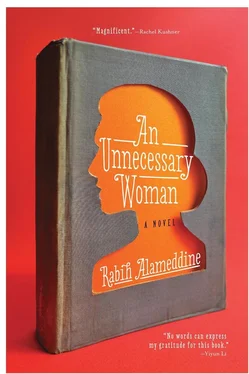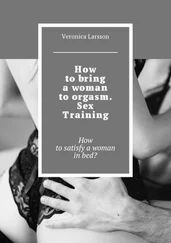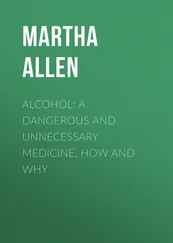Aaliya, the high one, the separate.
I, Aaliya, the aged one, should get to bed — lie in my bed, call upon the gods of rest, instead of sitting at my desk remembering.
The receding perspective of my past smothers my present.
Remembering is the malignancy that feasts on my now.
I feel tired and weary, my mind leaden, my hair still blue.
And so the days pass.
My bedroom is quiet except for the flapping of laundry in the breeze, sails of minor ships in soft gusts; the building behind me has verandahs on every floor (ours has none), and each has multiple laundry lines. I don’t mind these night sounds; I call them organic white noise. My bedroom has quieted over the years as Joumana’s family upstairs and Marie-Thérèse’s downstairs grew up and the rambunctious children departed. For as long as they lived below, Mr. Hayek had unidirectional screaming sessions with Marie-Thérèse at least once a week, throughout their marriage, until he died last year. I heard Fadia once say that you can tell how well a marriage is working by counting the bite marks on each partner’s tongue. Mr. Hayek had none. He held nothing back. You can’t do anything right. You always say the wrong thing. Why can’t you do what I tell you? You’re so frustrating. It was like listening to a less witty Who’s Afraid of Virginia Woolf? with a mousy, mute actress playing Martha.
It is much quieter now.
It’s much easier to sleep now, if only I could.
I had a troubling night. I must have dozed off briefly, because in the early morning my heart found itself disquieted by a short unrestful dream — not one with my mother, the protagonist of my most disturbing dreams, but one about Hannah, probably the woman my mother disrespected most in life, and in death.
How does this memory of mine work? How it betrays me. What thunderous ministorms of neurons were fired in my mind during the dark of morning, what ghosts!
While I dozed, Hannah materialized — healthy, younger, in her late thirties — and it seemed irrelevant at first that she was much younger than I. My almost sister-in-law appeared corporeal and sturdy, yet somehow askew, resembling a posthumous oil portrait more than herself. She wore one of her familiar unshapely dresses, fine linen and purple. There was an affectionate formality in the way the arms of a black sweater crossed around her shoulders, in the care of the woolly knot’s placement and position. Her shoes, not her face, were furrowed with wrinkles. Her gaze was kind, open, and amused.
“Sweetheart,” I said softly, extending my hand toward her cheek. “No one wears her hair like that anymore.” She grinned and I answered with my usual smile that begged forgiveness. She made an appearance to offer me courage, and I worried about her appearance. Shame. Such a worrywart I am. I miss miracles blooming before my eyes: I concentrate on a fading star and miss the constellation. I overlook dazzling thunderstorms worrying whether I have laundry hanging.
The archipelago of liver spots on the back of my hand kept distracting me from her face. I jerked it back, covered it with my left, and held both like a bouquet of prayers before my heart. She ignored me and walked toward the lieutenant, her husband-to-be, her husband-who-never-was. He was much younger than she in my dream. She kissed him, which couldn’t possibly have happened while she was alive, and he returned her kiss, matching passions. She undressed him with uncommon verve, her kisses deeper, her lust brazen.
An observer would receive the wrong impression from this salacious tableau. Their ages were wrong, I thought. Incompatible. Insidious Nabokov insinuated himself into my dreams once more, not allowing me to lose myself in watching what was before me, not allowing me to engage life. Hannah was Humbert, the lieutenant the ingénue. Fire of my loins. They fucked, no other term can be used. Hannah and her lieutenant fucked and fucked.
Why Hannah? Why now?
There was a time when nary a minute passed without my thinking of her, without my wondering about her last days, her consummate loneliness and how well she masked it, her insatiable longing. She’d come into my thoughts unsought, uninvited. Maybe Hannah and her ghost stayed away before this morning’s dream because they felt sorry for me in my old age, for me and my weary remembrance, maybe they felt it necessary, if only to relieve me of one of my grotesque obsessions. You have to move forward, try to live.
But life isn’t necessarily as considerate as its ghosts, or as compassionate.
Nor is it fair.
“She was Lo, plain Lo, in the morning, standing four feet ten in one sock. She was Lola in slacks. She was Dolly at school. She was Dolores on the dotted line.” I won’t translate Lolita even though I’ve always wanted to. It’s against the rules. Nabokov’s earlier work in rowdy Russian I could. “But in my arms she was always Lolita.”
“Lo. Lee. Ta.”
My memory has aged into an unruly child but is still quite precocious.
It is the loneliness, the abject isolation. Hannah reappears in my memories to remind me of how alone I am, how utterly inconsequential my life has become, how sad.
I have reached the age where life has become a series of accepted defeats — age and defeat, blood brothers faithful to the end. I struggle to get out of bed, as I do every morning. Still night outside, no light trickles through the short slats of the bedroom’s wood shutters. I’ve been awake for over an hour, probably more. I move my feet toward the edge of the bed and lower them to the carpet, which helps me sit up with less effort. Ouch. I extend a sleepy arm and turn on the bedside lamp, a fifty-year-old relic that barely functions, one of the first possessions I bought on my own.
Barely functions, like me: swollen limbs, arthritis, insomnia, both constipation and incontinence, the low and high tides of aging nether regions. In my morning veins, blood has slowed to the speed of molasses. My body is failing me, my mind as well. When my body functions, it seems to do so independently of my desires, and my mind regularly forgets what those desires are, not to mention where I’ve left my keys or my reading glasses. One could say that every day is an adventure.
I sit up tentatively, rest my feet on the night carpet next to the bed, the first of many offerings from Hannah. It is a peculiar prayer rug, small and handwoven, Persian or Afghan, with a miniature qibla compass at the top so I can spread it to the east. The compass still points eastward, but the rug does not. It does prevent my feet from facing the cold floor every winter morning.
I stand up carefully, lean and twist to stretch my back. The lower back pain isn’t necessarily age related — I’ve lived with mild back pain for years. What has changed is the complexity of the knots: in my younger years the back muscles felt like a simple bowline knot, whereas this morning they feel more like a couple of angler’s loops and a sheepshank. I’m able to name a few knots used by sailors, but I have never been on a boat. Joseph Conrad’s novels planted the seeds of love for sea stories. Annie Proulx’s The Shipping News led me to read The Ashley Book of Knots.
I am a reader. Yes, I am that, a reader with nagging back pain.
When my bones ache or my back rebels, I consider the hurt punishment for the years of alienating my body, even dismissing it with some disdain. I deplored my physicality when I was younger, and now it deplores me right back. As I age, my body demands its rightful place in the scheme of my attentions. It stakes its claims.
The mind over body then, but no longer.
Aaliya, above it all. Aaliya, the separated.
Aaliya, Aaliya, über alles.
Sad, sad, sad.
I walk gingerly toward the door, probably looking like a waddling gnome. My bedroom is one of the safe spaces in the apartment from which I’ve banished mirrors. In one of her books, Helen Garner says that all women over sixty instinctively learn to pass by a mirror without looking. Why risk it is what I say.
Читать дальше












